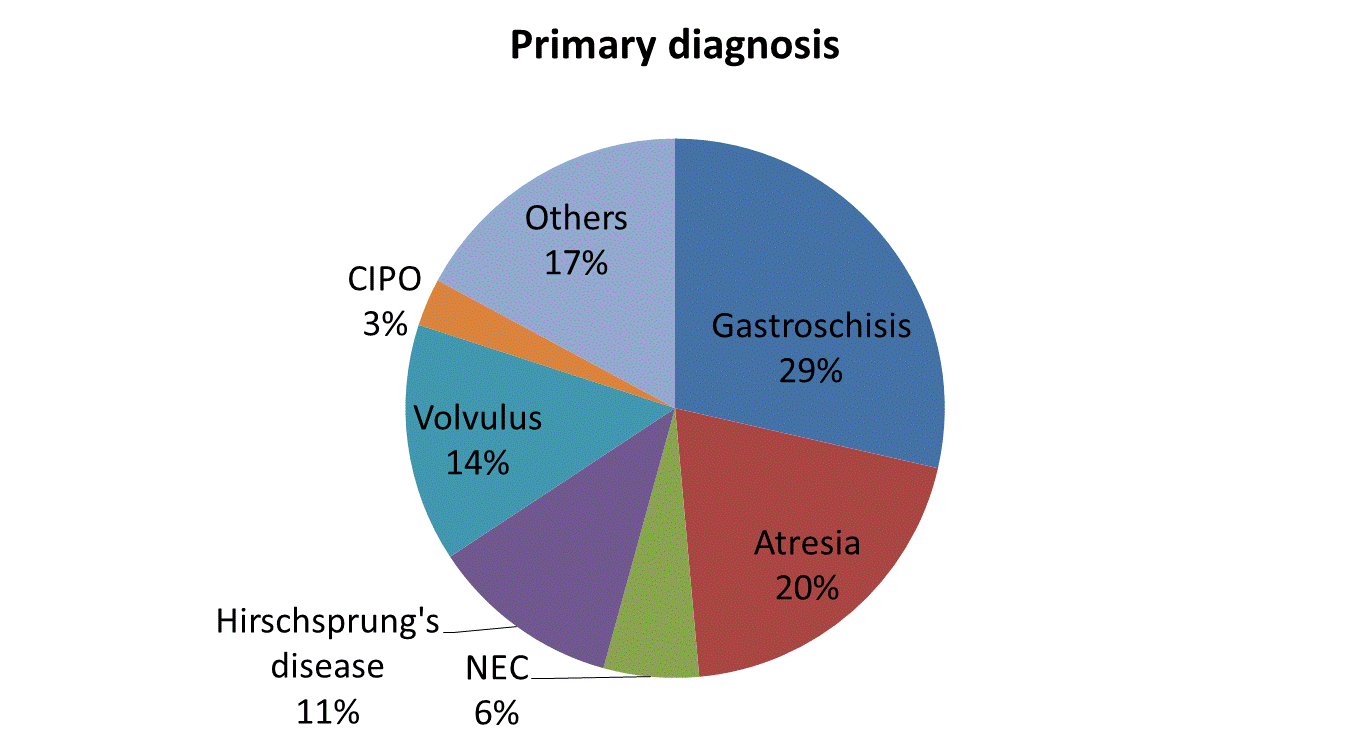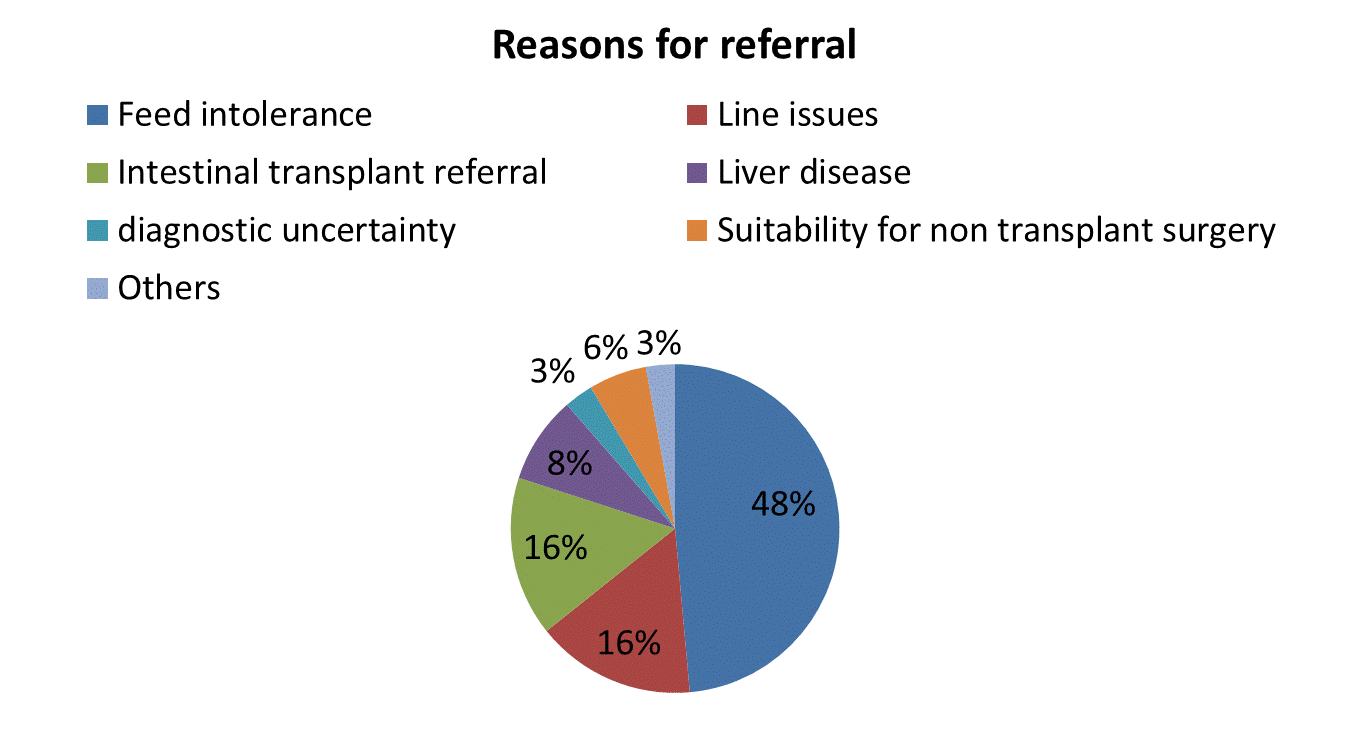Introduction: Home parenteral nutrition service was established at Birmingham Children's Hospital since 1987. Since then, the service has grown and the unit provides a second opinion to local, national as well as international complex intestinal failure (IF) patients. There is limited literature looking into the benefits of a multi-disciplinary team (MDT) in intestinal failure. This study aims to provide some initial data.
Methods: We did a retrospective data analysis over a 4-year period from January 2015 to December 2018 of all the children who have been discussed in our monthly multi-disciplinary IF planning meeting. We analysed their background diagnosis/ reasons for referral/ main advice given by the nutritional support and intestinal failure team (NSIF team) and their outcome as of January 2019.
Results: Over this period we had given our input for 61 patients with 70 consults with a male to female ratio of 1.8:1.
There were 4 non-UK referrals, 56 (80%) external UK referrals and 10 (14%) internal referrals. The median age at presentation was 5years, ranging from 1month to 16years.
As of January 2019, 19% had either come off parenteral nutrition (PN) or had reduced PN. 4% had small bowel transplant. One patient died post-transplant and the other whilst awaiting transplant. We are not aware of the outcome in 42%. 31% had no change in their clinical outcome.


Conclusion: Gastroschisis is one of the most common referred diagnoses, despite necrotising enterocolitis (NEC) being the most common reason for home parenteral nutrition. This might reflect difficulties faced by the clinicians dealing with complex gastroschisis possibly with dysmotility. The most common reason for referral was feed intolerance or non-progression. 19% either came off PN or had PN reduced after MDT advice/actioning, signifying the importance of obtaining advice from centres with IF expertise. 42% unknown outcome signifies more regular communication with the referral teams to determine the value of the meetings for the parent site.
.jpg )